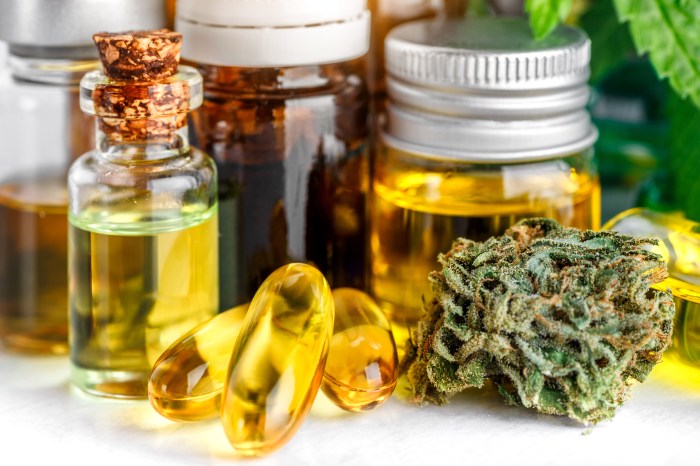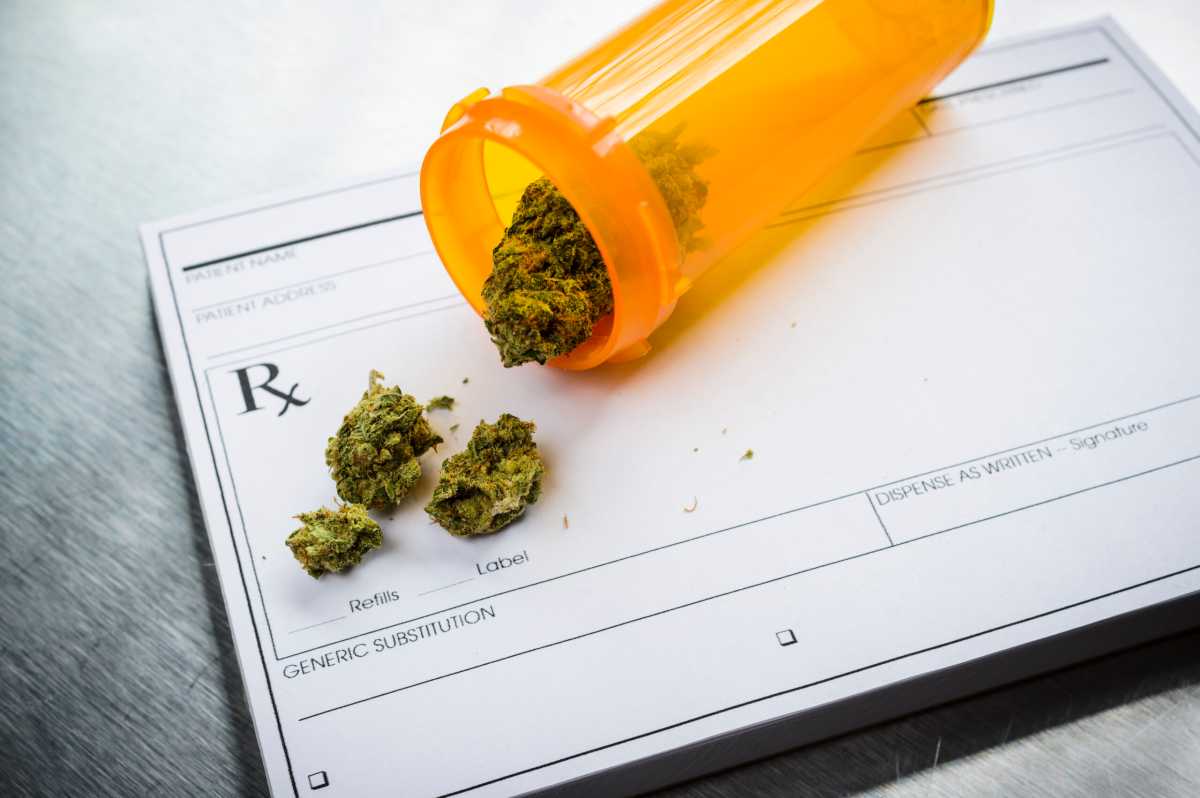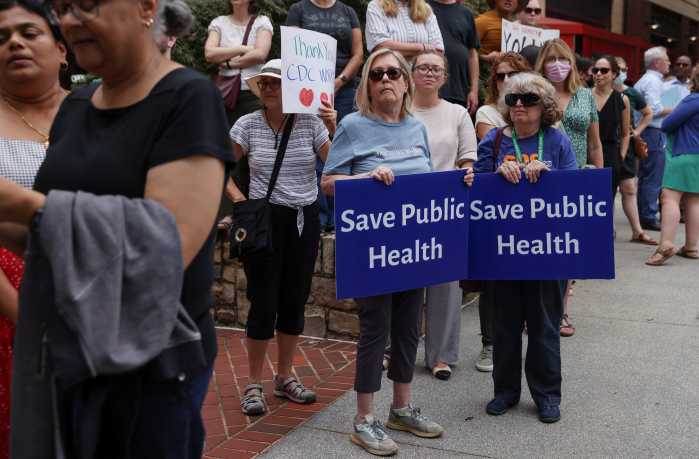Medical marijuana is increasingly being used as an alternative treatment for patients who are unable to find relief from their symptoms with traditional medications. In Pennsylvania and New Jersey, you can participate in the state’s medical marijuana program if an approved physician certifies you for it, but is it the right option for you?
The medical conditions medical marijuana is currently approved for include: Amyotrophic lateral sclerosis, anxiety disorders, autism, cancer, chronic Hepatitis C, Crohn’s disease, damage to the nervous tissue of the central nervous system and associated neuropathies, Dyskinetic and spastic movement disorders, epilepsy, glaucoma; HIV/AIDS, Huntington’s disease, inflammatory bowel disease, intractable seizures, Multiple Sclerosis, Neurodegenerative diseases, Neuropathies and chronic pain. You can find the full list of approved conditions at pa.gov/agencies/health/programs/medical-marijuana-patients.html.
Edward DaVeiga, M.D., associate professor, clinical medicine, Lewis Katz School of Medicine at Temple University told Metro Philadelphia that prescribing medical marijuana for a patient with an anxiety disorder can be a double-edged sword because it can both treat and cause anxiety.
“Sometimes you have to be careful with the diagnosis,” he said.
Exploring alternatives for pain management
DaVeiga grew interested in the benefits of medical marijuana when searching for alternative pain relief for some of his patients with chronic pain or a spinal cord disorder.
“Some patients, like those with diabetes, heart problems and kidney disease can’t take nonsteroidal anti-inflammatory drugs or NSAIDs, which are the most effective pain reliever and can only take Tylenol, a less effective option. Also, some patients prescribed Gabapentin for neuropathy, or a herniated disc can experience severe side effects,” he explained. “For those who have tried other medications, medical marijuana is an alternative that frequently provides the satisfaction they need. Medical marijuana relaxes them making it easier to sleep as well as helps their other medications work better.”

Understanding CBD vs THC
DaVeiga added that physicians try to avoid prescribing narcotics as much as possible.
“Medical marijuana is not adulterated so we know that it is clean and effective. Cannabidiol or CBD provides pain relief but won’t get you high. Tetrahydrocannabinol or THC is a psychoactive compound that can provide pain relief but also can have hallucinogenic effects in high doses. Most medical marijuana products are a combination of CBD and THC,” DaVeiga explained.
While medical marijuana can be smoked, vaped or come in the form of an edible, topical ointment, or a tincture, DaVeiga always advises his patients to start with a tincture because it has fewer side effects. Cannabis tinctures are liquid extracts of cannabis infused with a solvent like alcohol.
Side effects of marijuana, especially in high quantities, include extreme confusion, paranoia, anxiety or panic, rapid heart rate, increased blood pressure, dizziness, nausea or hallucinations.
He explained that it is important to note that marijuana in high quantities can be addictive and can lead to depression and anxiety.
DaVeiga said physicians need to screen for patients with a history of substance abuse or a history of hallucination or psychosis.
Cannabis hyperemesis syndrome is a condition where you experience nausea, vomiting and stomach pain whenever you consume cannabis. It usually affects long-term users who have been consuming cannabis since they were adolescents.
DaVeiga is especially interested in how medical marijuana can help elderly patients who can’t take narcotics because it will make them confused, nor NSAIDS because of pre-existing health conditions.
How to obtain a medical marijuana card
If your physician has recommended that you try medical marijuana, here is a go-to guide for registering for your medical marijuana ID card in Pennsylvania and New Jersey.
Patients, caregivers, and healthcare practitioners can register and participate in the medical marijuana program in Pennsylvania.
Patients need to take three steps to participate in the program.
- Register on the website. (padohmmp.custhelp.com/app/login)
- See an approved doctor to get certified. You will be able to choose from a list during the registration process.
- Pay for your medical marijuana ID card.
Once you have your ID card, you can visit any of the specified Pennsylvania dispensaries to purchase your medical marijuana.
To register, you must have proof of Pennsylvania residency and a working email address. Your Pennsylvania driver’s license or state issued ID card must have your current address on it.
If you need your caregiver to purchase the medical marijuana for you, they can also register on the website.
The registration process for residents of New Jersey is similar. (Additional details are available online at nj.gov/cannabis/medicinalcannabis/medical).
You can find licensed medical marijuana dispensaries in Pennsylvania at pa.gov/agencies/health/programs/medical-marijuana/dispensaries and in New Jersey at nj.gov/cannabis/dispensaries/find/.
Staying safe and legal
Patients and caregivers should carry proper identification, including Medical Marijuana Program cards, at all times. Always keep medicinal cannabis in its original labeled packaging and only use at home. Government officials advise to only transport when absolutely necessary and never share with anyone.
In Pennsylvania, marijuana for recreational use is still illegal. In New Jersey, it is legal for residents 21 years and older. Up to the equivalent of 28.35 grams or 1 ounce of usable cannabis can be purchased at any of the New Jersey licensed cannabis dispensaries.
It is still illegal to transport cannabis across state lines, and laws regarding driving while impaired apply to being under the influence of cannabis.




























